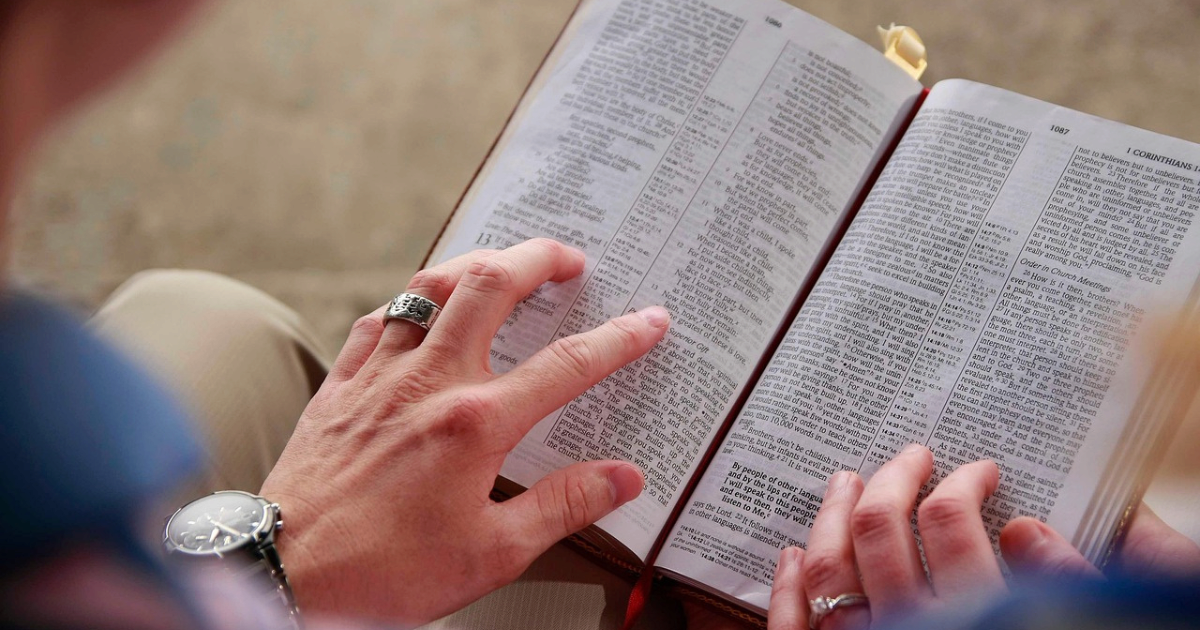I grew up in the Middle East, where patriarchy was not only common, but deeply integrated into church and society. Men ruled, women followed and no one argued. As a child, I didn’t think much of it: it was just the way things were. But, as I grew older and started to study Scripture for myself, I saw something else, something new, something that went against everything I had learned about gender roles and the Bible.
The Bible is frequently used to support patriarchy, but the message emanating from every page is clear: God does not look at women and men differently. The first chapter of Genesis has the creation of humankind, “So God created mankind in his own image, in the image of God he created them; male and female he created them.” (Genesis 1:27, NIV). There was no hierarchy, no ‘lesser than,’ no ‘greater than’—we were created equal in the image of God, called to manifest the character of God and share his love.
Jesus took this even further. He gave women value in a culture where women were not highly valued. He spoke to a Samaritan woman at the well, a conversation that went against his culture's norms (see John 4). He defended the woman who was accused of adultery and was going to be stoned by the people (see John 8). He permitted Mary to sit by his feet and listen to his teachings as a disciple, even though, culturally, disciples were men (see Luke 10). Jesus not only allowed women but honoured women. He showed us what God’s kingdom is: a community where everyone is welcomed and has a right to sit at the table.
The early church also embraced gender equity. In Romans 16, Paul speaks highly about Phoebe, a deacon and church leader in Cenchrea. He says, “I commend to you our sister Phoebe… Welcome her in the Lord as one who is worth of honour among God’s people. Help her in whatever she needs, for she has been helpful to many, and especially to me” (see Romans 16:1-2, NLT).
Phoebe wasn’t just a helper but a church leader whom Paul invites to be welcomed in the Lord and for whom he requests friends and the church assist in whatever “she may need.” Her part in the early church is significant; it shows that women have always been an integral part of God’s work.
Around the world, churches are re-examining Scripture with fresh eyes, listening to the stories of women and recognizing the powerful ways God is using them to lead, teach and serve. The journey toward equity is ongoing, but the Spirit is clearly at work—calling the Church to more fully reflect the inclusive heart of the gospel.
One of the ways I have practiced making gender equity as a norm in my culture is through an Arabic church group I’ve led in the past three years. I’ve regularly invited a female member of this group to take on a preaching or a teaching, as a means of breaking the cultural norm that only a male pastor or elder should do the teaching. I’ve seen how this has helped the group appreciate the female voice in their midst and allowed other female voices to feel encouraged to do the same. I know this might sound like a normal practice for us, but for some cultures, it’s breaking generations of a status quo of believing that preaching and teaching are only reserved for males.
In Matthew 5:14, we are called to be the light of the world. Being light means we can’t remain passive. We can’t just follow the cultural trends that discriminate against women. We must follow Jesus’ example and speak out against injustice, standing up for those who are being oppressed or silenced because of their gender. We must oppose gender inequality whenever we see it, whether in our own churches or elsewhere. This is where The Salvation Army can lead the way.
As a church, we have a long-standing tradition of supporting women and men equally. The Salvation Army was founded by Catherine and William Booth, both big proponents of women preaching. Catherine Booth said in her pamphlet, Female Ministry; or, Woman’s Right to Preach the Gospel (1859), “If the Word of God forbids female ministry, we would ask how it happens that so many of the most devoted handmaidens of the Lord have felt themselves constrained by the Holy Ghost to exercise it? Surely there must be some mistake somewhere, for the Word and the Spirit cannot contradict each other.”
A spirit of equity is in our blood. We must keep on striving for gender equity, particularly in environments where conventional gender roles are still deeply entrenched in culture.
How do we do that?
- We can study the Bible in a holistic context and not only the parts we are comfortable with. We must preach about Phoebe, Deborah, Priscilla and all the other women who acted with courage in the Bible. We must prove this truth: gender equity is the heart of the gospel. Restoring us, female and male, to our original state, designed by God to be used by Him, will allow us to thrive in our giftings.
- We can ensure female leaders in our organization are encouraged and supported to exercise their talents and potential. They should be provided with opportunities to lead and develop these gifts.
- We can speak out against injustice. The church should be a haven for women, not the reverse, where women are dismissed or disempowered. We must be the voice for those whose voices are not always heard. We must fight for the rights of all of God’s people.







Leave a Comment